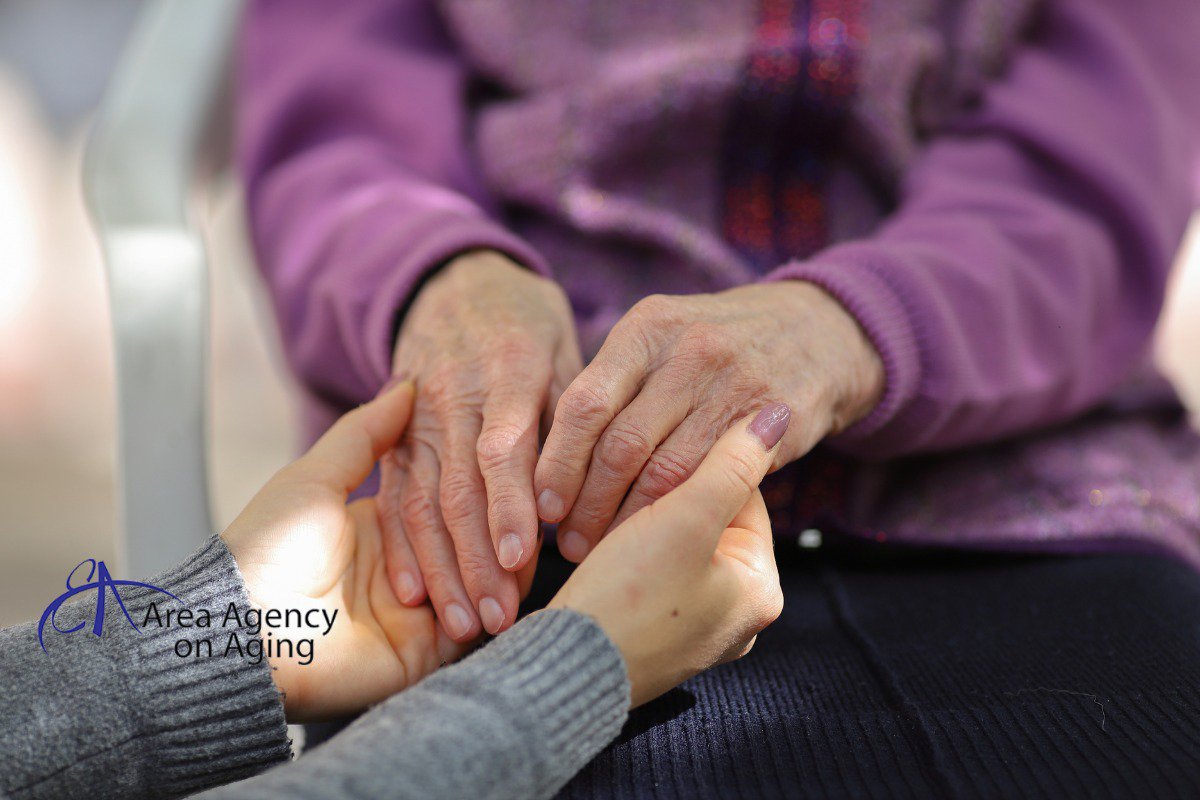Family caregivers are the backbone of support for aging loved ones. Whether providing daily assistance with meals, transportation, medications, or emotional companionship, caregivers play a role that is both essential and deeply personal. However, this role often comes with significant emotional, physical, and mental demands. When the stress of caregiving accumulates without proper relief, caregivers can experience what is known as caregiver burnout.
Caregiver burnout is more than occasional fatigue. It is a state of chronic stress that can result in exhaustion, feelings of hopelessness, and even long-term health concerns. This guide explores caregiver burnout in depth, from its causes and warning signs to strategies for prevention and recovery.
Key Takeaways
- Caregiver burnout is a state of emotional, physical, and mental exhaustion caused by prolonged stress and lack of support.
- Burnout develops gradually, often from physical strain, emotional distress, financial pressure, social isolation, or lack of respite.
- Symptoms include fatigue, mood changes, social withdrawal, and neglect of personal health.
- Burnout affects both the caregiver’s well-being and the quality of care provided.
- Prevention strategies include prioritizing self-care, setting boundaries, seeking respite, and staying socially connected.
- Recovery requires honest communication, small breaks, professional help, and adjusting care plans.
- Sustainable caregiving depends on building support networks, planning for the future, and accessing community resources.

What Is Caregiver Burnout?
Caregiver burnout is a state of physical, emotional, and mental exhaustion that may be accompanied by changes in attitude—from compassion and optimism to feelings of apathy or even resentment. It occurs when caregivers do not get the help they need, or if they attempt to do more than they are physically or financially able to manage.
While caregiving can be a rewarding experience, the demands of the role often mean caregivers put themselves last. Over time, this self-neglect can take a serious toll on overall well-being. View the list of Caregiver Services and find what support is available near you.
Causes of Caregiver Burnout
Burnout does not develop overnight. It is the result of sustained stress combined with insufficient support. Common causes include:
1. Physical Demands
- Assisting with mobility, bathing, lifting, and transferring loved ones can strain the body.
- Caregivers often lose sleep or neglect their own health appointments.
2. Emotional Strain
- Watching a loved one’s health decline can be heartbreaking.
- Caregivers often suppress their emotions to “stay strong,” leading to emotional fatigue.
3. Financial Pressures
- Many caregivers reduce work hours or leave jobs entirely to provide care.
- Out-of-pocket expenses for medical supplies, prescriptions, or home modifications can accumulate quickly.
4. Social Isolation
- Caregivers often withdraw from friends, hobbies, and community life.
- Loneliness is a significant contributor to burnout.
5. Lack of Support
- Feeling solely responsible for a loved one’s care can amplify stress.
- Without respite services, breaks, or outside help, the load becomes unsustainable.
Symptoms of Caregiver Burnout
Recognizing the signs of caregiver burnout early can prevent long-term harm. Symptoms may be physical, emotional, or behavioral:
Physical Symptoms
- Chronic fatigue
- Frequent headaches or stomach issues
- Changes in appetite or weight
- Sleep disturbances or insomnia
Emotional Symptoms
- Irritability or mood swings
- Loss of interest in activities once enjoyed
- Feelings of hopelessness or helplessness
- Increased anxiety or depression
Behavioral Symptoms
- Neglecting personal responsibilities
- Withdrawing from social interactions
- Increased use of alcohol or medications for relief
- Reduced performance at work
The Impact of Caregiver Burnout
Unchecked burnout affects not only the caregiver but also the quality of care a loved one receives.
Effects on the Caregiver
- Higher risk of chronic health issues such as hypertension, diabetes, or heart disease
- Weakened immune system
- Heightened risk of depression or anxiety disorders
- Increased financial strain from missed work or medical expenses
Effects on the Care Recipient
- Decline in quality of care
- Increased risk of neglect, even if unintentional
- Strained relationship between caregiver and loved one
Risk Factors for Caregiver Burnout
While any caregiver can experience burnout, certain factors increase risk:
- Providing care for a loved one with dementia, Alzheimer’s disease, or severe disability
- Living with the care recipient full-time
- Having limited financial resources
- Being the sole or primary caregiver without outside help
- Having a history of depression, anxiety, or other mental health challenges
- Being female, as women often take on caregiving roles more frequently and intensely
How to Prevent Caregiver Burnout
Prevention begins with awareness and proactive steps to maintain balance. The following strategies can reduce the risk of burnout:
1. Prioritize Self-Care
- Maintain regular health check-ups and doctor visits.
- Exercise regularly, even if only for short walks.
- Maintain a healthy diet and adequate sleep.
2. Set Realistic Expectations
- Accept that one person cannot do everything.
- Focus on what can be controlled and let go of unrealistic goals.
3. Seek Respite Care
- Take advantage of services that provide short-term relief, such as adult day care or in-home respite.
- Ask family or friends to step in regularly to allow for breaks.
4. Stay Connected
- Maintain social relationships through phone calls, texts, or support groups.
- Stay engaged in hobbies and personal interests.
5. Establish Boundaries
- Say “no” when additional responsibilities become overwhelming.
- Set aside personal time that is non-negotiable.
6. Use Support Services
- Explore counseling, caregiver support groups, and educational resources.
- Consider community organizations like local agencies on aging for assistance.
Coping Strategies for Caregivers Already Experiencing Burnout
If burnout has already set in, recovery requires both immediate relief and long-term adjustments.
Acknowledge Feelings
- Recognize that frustration, sadness, or anger are natural responses.
- Avoid self-judgment for needing help.
Take Small Breaks
- Even brief moments of rest can restore energy.
- Practice mindfulness, deep breathing, or short walks.
Communicate Honestly
- Share feelings with trusted friends, family, or professionals.
- Consider joining a caregiver support group for validation and advice.
Explore Professional Help
- Counseling or therapy can provide healthy coping tools.
- Medical professionals can assess stress-related health conditions.
Adjust the Care Plan
- Reevaluate the level of care being provided.
- Seek additional services, equipment, or home modifications that reduce strain.
Long-Term Solutions for Sustainable Caregiving
Caregiving is often a marathon, not a sprint. Creating sustainable systems ensures both the caregiver and care recipient thrive.
Building a Support Network
- Involve extended family members in care duties.
- Establish regular check-ins with friends or community members.
Planning for the Future
- Develop financial and legal plans for long-term care.
- Explore assisted living, adult day care, or in-home care options.
Focusing on Emotional Health
- Engage in stress-reduction practices like yoga, meditation, or journaling.
- Celebrate small successes and milestones in caregiving.
Using Community Resources
- Local agencies on aging can provide respite care, support groups, and education.
- Many programs are free or low-cost and tailored to specific caregiving needs.
Finding Support in East Arkansas
No caregiver should walk this journey alone. The demands of caring for a loved one are immense, but so is the value of support. East Arkansas Area Agency on Aging provides resources designed to help family caregivers avoid burnout, find relief, and restore balance.
Services include respite care, caregiver education, support groups, and access to local programs tailored to individual needs. All services are built with compassion and designed to empower caregivers to care for both their loved ones and themselves. Caregiving is an act of love, but it should not come at the cost of a caregiver’s health and well-being. Recognizing the signs of caregiver burnout and seeking timely support is not a sign of weakness—it is a step toward sustaining both the caregiver and the loved one receiving care.
For more information about caregiver support services, contact us today to learn how their programs can help create balance, connection, and lasting relief.


